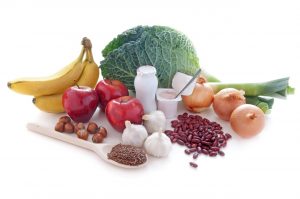Probiotics Aid Gut Health, Prevent Disease

Most of these organisms reside in the gut, and help process food into energy, absorb nutrients, strengthen immunity and more. Here are just some of the things probiotics can do for your gut health:
- Ease gas and bloating
- Reduce abdominal pain or cramping
- Support regular bowel movements
- Manufacture essential vitamins such as vitamin K
- Prevent the overgrowth of harmful bacteria
Beyond these benefits, studies have shown that certain strains of probiotics may even reduce the risk of developing certain diseases, ease the symptoms of some diseases, alleviate allergy symptoms and reduce negative effects of lactose intolerance. Other research has suggested that probiotics can help with depression and promote mental health.
Foods High in Probiotics
While it is not necessary for you to do anything to maintain probiotics in your gut, there are things you can do to support this healthy system. One is to consume fermented foods that are high in probiotics. Here are some to try:
- Yogurt or Kefir. Most yogurt is high in probiotics. However, yogurt that has been heat treated after fermentation does not contain any live beneficial probiotics. Check the label before purchasing yogurt and make sure it says that the contents contain “live and active cultures” like Lactobacillus bulgaricus and Streptococcus thermophilus.
- Sauerkraut. When cabbage is fermented, it becomes sauerkraut, a food dense in probiotics and other nutrients. Try including it as a regular side dish at the dinner table.
- Kimchi. Kimchi, a traditional Korean food, is another cabbage-based fermented food high in probiotics. Unlike sauerkraut, kimchi can be very spicy, although there are many variations on the basic recipe. Because of this, you may want to try several different kinds of kimchi to find one you like best.
- Miso Soup. Miso soup, a traditional Japanese food, is made from fermented beans, rye, rice or barley. It is very easy to make: just purchase miso paste, then dissolve a spoonful in hot water. It has a mild, salty flavor.
- Pickles. Pickles are fermented cucumbers. Most contain probiotics, however, like yogurt, some may have been heat-treated and lost their probiotic properties, so check the label before purchasing.
- Kombucha. Kombucha is a type of fermented tea high in probiotics that has become popular in recent years. Today, you can buy kombucha at most grocery stores. It comes in a variety of flavors and is low in calories too.
- Soy Milk. If you are lactose-intolerant, but want to consume more probiotics, try soy milk. Check the label before you buy, though, to make sure it contains live and active cultures.
If you have tried the foods on the list and are having a hard time finding ones you like, you can still add probiotics to your diet by taking probiotic supplements. However, before you do, make sure to check with your doctor before taking any type of vitamin or supplement.
Sugar Aids Production of Bad Bacteria
One final tip for supporting the probiotic system in your gut: eat less refined sugar. In addition to the many negative consequences of eating refined sugar — such as greater risk of obesity — it also promotes the growth of bad bacteria and upsets your gut flora balance.
